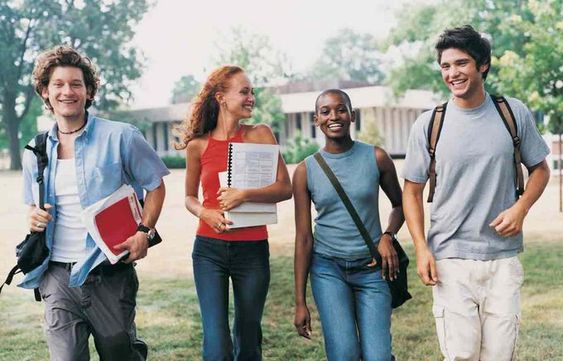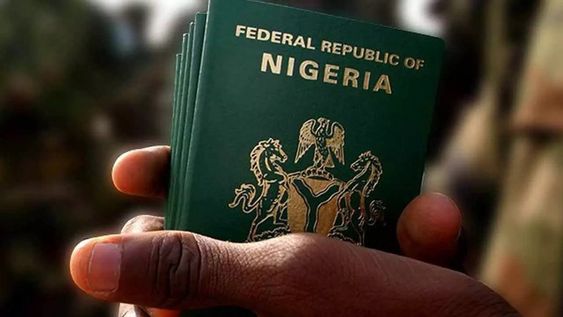How to get a USA Student Visa as a Nigerian.
It is no news that the dream of the majority of our Nigerian students is to study in the United States of America. Research shows that Nigerians make up about 31% of the total African students in the United States and ranks as 12th in the world. Over 1,000 institutions in the United States have at least one Nigerian Student and this has formed an ever-growing bond. The Public Affairs Officer, US Consulate, Lagos, in a recent statement mentioned that the United States wants more Nigerian students therefore making it a lot easier to get a USA student visa as a Nigerian.

If you are interested in a UK visa, click here.
Before you can start your visa application, it is important that you have your Nigerian International passport. It has to be valid for a minimum of six months beyond your stay in the United States and it should have two blank pages. These pages are where the visa stamping would be placed. Ensure that there are no marks or writings whatsoever on the pages. Having your passport is just the first out of many steps, you would find the rest of the steps to take for a USA student visa as a Nigerian below.

Requirements for a United States Student Visa
- An electronic application form called DS-160 should be filled and submitted online.
- If your passport includes more than one person, each of you must submit an application.
- A recent passport photograph, 5x5cm, taken on a white background showing your full face with a neutral expression.
- The passport should not be older than six months and should be taken in casual clothes.
- If you are below the age of 14 and older than 79, your biometrics (fingerprints) would be taken during the visa interview.
- You must already be admitted into your institution of choice before applying for this visa.
- After being admitted, your institution will issue an I-20 form which should be included in the documents taken to your visa interview.
- It is necessary that you book your interview in advance. When you do so, a letter would be issued which you must take along with you to the interview.
- Your application will not be processed without payments of necessary fees.
- Documents showing strong ties to Nigeria and your family would be necessary. It will serve as proof that you would return to Nigeria after your studies and would increase your chances of getting a visa.
- You have to demonstrate the ability to pay all your academic bills for the duration of your study. This can be through bank statements, scholarship award letters or an affidavit from your sponsor.
- If you have a scholarship award letter or bank statement, note that only ORIGINAL copies would be accepted. The bank statement must be stamped and signed by the issuing bank.
- Your graded transcripts, public certificate examinations scores (such as WAEC, NECO, etc.), standardized test scores (SAT, TOEFL, etc.) and also diplomas should be submitted.
- Those travelling with a spouse or child should have proof of relationship to them. This could be a marriage or birth certificate.
Considering studying in Russia? You should read this!
The United States issue two kinds of visa to prospective students and these are:
- F-1 Visa
- M-1 Visa
F-1 Visa
The F-1 visa is the most common type of student visa. It is issued for full-time programs in the United States. This visa allows the student to study at an approved college or university, private secondary school, or approved English language program. If you spend over 18 hours a week on your course, then this visa is for you.
There is also the F-2 which is issued to your spouse or child travelling with you. It is called a dependent visa. Holders of this visa cannot engage in any form of employment but minors can study in public schools.
In order to obtain an F-1 visa, your institution of choice must be part of the Student and Exchange Visitor Program (SEVP). Secondary school students also must be in a SEVP-certified school. However, as a Secondary school student, you cannot apply to a public school unless you would be starting from the 9th grade in which case you would be allowed a maximum of 12 months at the school.
Upon entry into the United States, the officer at the port would issue a Form I-94 which would state how long the student can stay in the US. This would be written as D/S (duration of study). The student would also be given a 60-day grace period to stay in the United States after the completion of the course. You can leave and re-enter the United States during the grace period.
Note that if you are absent without leave from your course for up to five months, you would lose your student status and will have to re-apply for the visa.
M-1 Visa
This visa is issued to individuals who want to participate in non-academic learning in the United States. It is for vocational and technical training.
The M-1 visa also has a dependent visa known as M-2 visa, however, unlike the F-2 visa, holders of the M-2 visa can attend public elementary and Secondary schools regardless of the grade level.
Individuals with an M-1 visa can enroll in any form of training which is typically held in a community or junior college awarding associate degrees, trade, vocational or flight school. With this visa, you cannot work both on-campus and off-campus so you must have enough funds at the time of entry to last the duration of the training. M visa usually allows a maximum stay of one year which is only extendable due to medical reasons. The one year stay includes a 30-day grace period after the completion of the study.
To obtain this visa, you must maintain 12 hours of study at a junior school or community college, 18 hours in a post-secondary vocational institution and 22 hours per week in a shop or lab-based curriculum. You cannot change your M status to an F status and neither can you apply for a transfer in the first six months of your course.
Lastly, it is highly important to remember that first impression matters a lot so when going for your visa interview, dress in smart, neat clothing, avoid strong perfumes, excess jewelry and above all, be punctual.

Visa Fees
The standard fee for a United States of America visa is $160 regardless of the number of entries.

Visa Processing Time
It takes 5-15 working days to process a United States of America visa and could be longer if additional documents are required.
United States Embassy in Nigeria
- Address: Plot 1075, Diplomatic Drive Central District, Abuja
Nigeria. - Telephone: (+234) 9-461-4000
- Fax: (+234) 9-461-4036
- E-mail: [email protected]
- Website: ng.usembassy.gov
Do you need further help with your USA Student visa as a Nigerian, click here for more information.